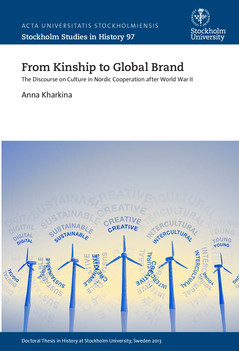This work analyzes the political instrumentalization of culture. The
analysis takes, as an example, official Nordic cultural cooperation in
the post-war period. During this time, cultural exchange became the
subject of political attention establishing itself as part of the Nordic
inter-governmental cooperation framework.
This work focuses on three key moments in the history of official
Nordic cultural cooperation: (i) the failure of the NORDEK plan and
the establishment of the Nordic Council of Ministers in 1971; (ii) the
collapse of the Soviet system at the end of the 1980s - beginning of the
1990s; and (iii) the movement towards promoting the Nordic region
on the global market in the first decade of the 2000s.
The analysis traces the lack of convergence between the official arm's
length principle in cultural policy and how cultural cooperation
actually worked. The results of the research both demonstrate
the various ways culture was instrumentalized and also prove
that the politically defined concept of culture can receive different
interpretations in the official discourse depending on current political
goals.


